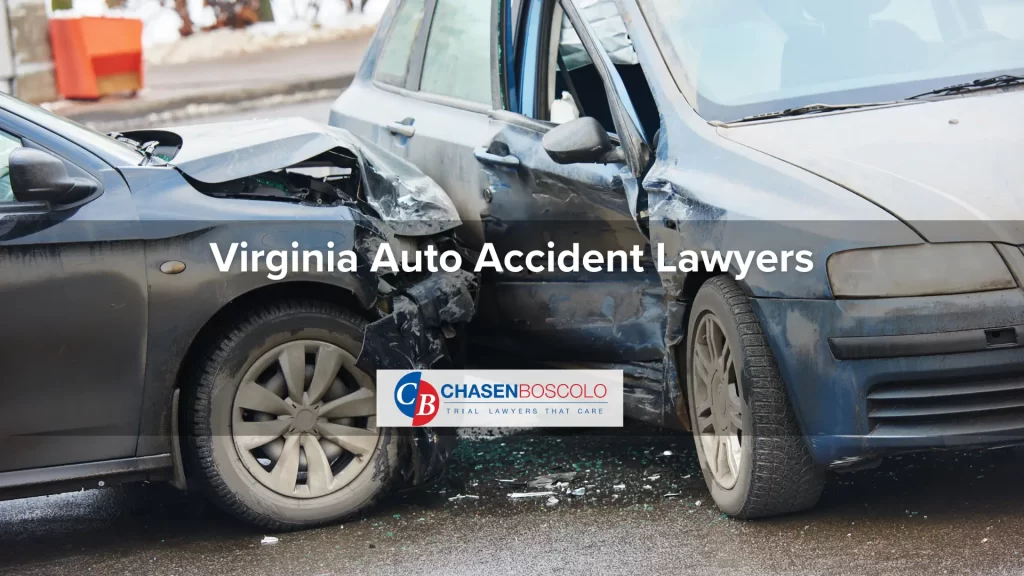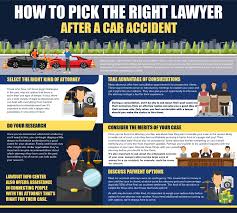Introduction
Car accidents are one of the most distressing and disruptive experiences that a person can face. From the shock of the impact to dealing with injuries, insurance companies, and medical expenses, the aftermath of an accident can quickly become overwhelming. If you are involved in a car accident in Virginia, seeking the services of an experienced car accident lawyer is not just beneficial—it can be vital.
In this article, we’ll explore everything you need to know about working with a car accident lawyer in Virginia. You will learn about your rights, the legal process, how to choose the right attorney, and what kind of compensation you may be entitled to. Whether you’re seeking justice or financial recovery, this comprehensive guide is your starting point.
1. Understanding Car Accidents in Virginia
Virginia is home to a complex road network, with urban congestion in Northern Virginia and rural highways in the western part of the state. According to the Virginia Department of Motor Vehicles (DMV), thousands of accidents occur annually, leading to injuries, fatalities, and significant property damage.
Common causes of car accidents in Virginia include:
-
Distracted driving
-
Speeding
-
Driving under the influence
-
Weather-related hazards
-
Failure to yield
-
Reckless or aggressive driving
2. Legal Framework for Car Accidents in Virginia
A. Fault-Based Insurance System
Virginia follows a traditional “at-fault” insurance model. This means the driver who caused the accident is responsible for paying damages through their insurance provider. Victims have the right to pursue a claim against the at-fault party for compensation.
B. Contributory Negligence Rule
Virginia is one of the few states that adheres to a pure contributory negligence rule. Under this system, if the injured party is found even 1% at fault for the accident, they are barred from recovering any compensation. This harsh standard makes it especially important to consult with a skilled car accident attorney.
C. Statute of Limitations
In Virginia, accident victims have two years from the date of the accident to file a personal injury lawsuit. Failing to meet this deadline can result in your case being dismissed, regardless of its merits.
3. What a Car Accident Lawyer in Virginia Can Do for You
Hiring a car accident lawyer can provide invaluable support in numerous ways:
A. Investigation and Evidence Collection
A competent lawyer will conduct a thorough investigation, gather evidence such as police reports, surveillance footage, eyewitness statements, and medical records.
B. Dealing with Insurance Companies
Insurance companies often attempt to minimize payouts. Your attorney will negotiate with insurers to ensure you receive a fair settlement.
C. Legal Strategy and Case Preparation
From filing court documents to preparing for trial, your lawyer will handle all legal procedures on your behalf, ensuring compliance with Virginia laws.
D. Litigation and Court Representation
If settlement negotiations fail, your attorney can represent you in court, advocate for your rights, and present a compelling case to the jury.
4. Types of Compensation Available in Car Accident Claims
Victims of car accidents in Virginia may be entitled to various types of compensation, including:
A. Economic Damages
-
Medical bills (current and future)
-
Lost wages
-
Property damage
-
Out-of-pocket expenses (e.g., transportation, medical equipment)
B. Non-Economic Damages
-
Pain and suffering
-
Emotional distress
-
Loss of enjoyment of life
-
Permanent disfigurement or disability
C. Punitive Damages
In rare cases involving gross negligence or intentional misconduct, punitive damages may be awarded to punish the defendant and deter similar behavior.
5. Steps to Take After a Car Accident in Virginia
Taking the right steps immediately after an accident can strengthen your case:
A. Ensure Safety
Move your vehicle to a safe location and check for injuries.
B. Call the Police
Always report the accident to law enforcement, even if it seems minor.
C. Exchange Information
Obtain contact and insurance details from all parties involved.
D. Document the Scene
Take photos of the vehicles, road conditions, injuries, and surroundings.
E. Seek Medical Attention
Even if you feel fine, get evaluated by a doctor to detect internal injuries or delayed symptoms.
F. Consult a Lawyer
Contacting a Virginia car accident lawyer early can help preserve evidence and begin legal proceedings promptly.
6. Common Injuries in Car Accidents
Car crashes can lead to a variety of injuries, ranging from minor to life-altering:
-
Whiplash
-
Concussions and traumatic brain injuries
-
Spinal cord injuries
-
Broken bones
-
Internal bleeding
-
Burns and lacerations
-
Psychological trauma (e.g., PTSD)
The severity of your injuries will play a major role in determining the value of your claim.
7. Choosing the Right Car Accident Lawyer in Virginia
Not all attorneys are created equal. Here are some factors to consider when hiring a lawyer:
A. Experience
Look for an attorney who specializes in personal injury and has a strong track record in handling car accident cases.
B. Reputation
Check online reviews, client testimonials, and disciplinary records.
C. Communication
Choose a lawyer who listens to your concerns, explains your options, and keeps you updated throughout the process.
D. Trial Experience
Even if you aim for a settlement, having a lawyer who can go to trial strengthens your negotiating position.
E. Contingency Fee Basis
Most personal injury lawyers in Virginia work on a contingency fee, meaning you don’t pay unless you win.
8. The Legal Process: What to Expect
A. Initial Consultation
You meet with the lawyer to discuss the facts of your case, your injuries, and potential legal options.
B. Investigation
The lawyer collects evidence and builds a case strategy.
C. Filing the Claim
Your attorney sends a demand letter to the at-fault party’s insurer.
D. Negotiation
Your lawyer negotiates for a fair settlement. Many cases settle at this stage.
E. Filing a Lawsuit
If no settlement is reached, your lawyer files a complaint in civil court.
F. Discovery Phase
Both sides exchange evidence, take depositions, and may undergo mediation.
G. Trial
If the case proceeds to court, a judge or jury decides the outcome.
9. Dealing with Uninsured or Underinsured Drivers
Virginia law requires insurance companies to offer Uninsured/Underinsured Motorist (UM/UIM) coverage. If the at-fault driver lacks sufficient insurance, you can file a claim through your own policy under UM/UIM provisions.
Your lawyer will guide you through this process and ensure that you maximize available coverage.
10. FAQs About Car Accident Claims in Virginia
Q: How long will it take to resolve my case?
A: Simple cases may settle in a few months, while complex litigation can take a year or longer.
Q: Can I still file a claim if I wasn’t wearing a seatbelt?
A: Yes, but it may impact your damages if the defense argues your injuries were worsened as a result.
Q: What if multiple parties are involved in the accident?
A: Your attorney will help determine liability and may pursue claims against multiple defendants.
Q: Should I accept the insurance company’s first offer?
A: Never accept an initial settlement without consulting your lawyer—it is likely lower than what you deserve.
Q: Will my case go to court?
A: Most cases settle, but if a fair offer isn’t made, your lawyer can take it to trial.
11. Real-Life Case Examples
Case 1: Rear-End Collision in Richmond
A 32-year-old woman was rear-ended at a traffic light and suffered spinal injuries. The insurance company offered $20,000. Her attorney filed suit and secured a $75,000 settlement after depositions revealed the defendant was texting while driving.
Case 2: Head-On Collision in Fairfax
Two drivers collided due to icy roads. Fault was disputed. The plaintiff’s lawyer obtained surveillance video showing the other car had lost control, leading to a favorable jury verdict of $120,000.
12. Conclusion
Car accidents in Virginia can have serious physical, emotional, and financial repercussions. When navigating a complex legal landscape—especially under the state’s strict contributory negligence rules—it’s crucial to have an experienced car accident lawyer by your side. From investigating your case to negotiating with insurance companies and representing you in court, the right attorney can significantly increase your chances of a successful outcome.
Whether you’ve suffered a minor injury or are facing long-term recovery, don’t go through it alone. Contact a qualified Virginia car accident lawyer to protect your rights and pursue the compensation you deserve.
Disclaimer: This article is intended for informational purposes only and does not constitute legal advice. For guidance on your specific situation, consult a licensed attorney in Virginia.

